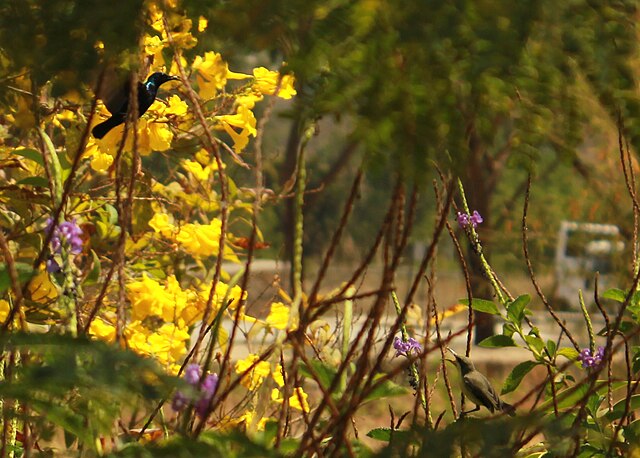Permaculture is an approach to land management and settlement design that adopts arrangements observed in flourishing natural ecosystems. It includes a set of design principles derived using whole-systems thinking. It applies these principles in fields such as regenerative agriculture, town planning, rewilding, and community resilience. The term was coined in 1978 by Bill Mollison and David Holmgren, who formulated the concept in opposition to modern industrialized methods, instead adopting a more traditional or "natural" approach to agriculture.
A garden cultivated on permaculture principles
Franklin Hiram King introduced the term "permanent agriculture" in 1911
Bill Mollison, who has been described as the "father of permaculture," cites Aboriginal Tasmanian belief systems as an inspiration of the practice.
Ladybugs are seen as beneficial insects in permaculture because of their help with aphid control.
Regenerative agriculture is a conservation and rehabilitation approach to food and farming systems. It focuses on topsoil regeneration, increasing biodiversity, improving the water cycle, enhancing ecosystem services, supporting biosequestration, increasing resilience to climate change, and strengthening the health and vitality of farm soil.
Biodiversity of Pune, India
Hoverfly at work
Rodale Institute, Test Garden
Field in Hamois, Belgium








